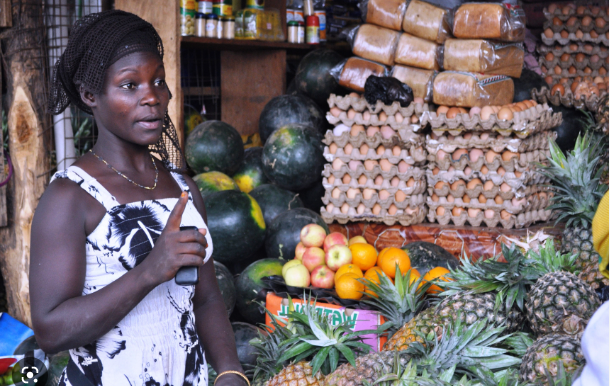Inhabitants of South Sudan’s capital Juba say commodity prices shot up after the festive season which they attribute to a strong dollar and resultant inflation.
A cross-section of Juba residents sounded out by Radio Tamazuj say prices for both food and non-food items have skyrocketed.
Rose Napoli, a resident of the Nyakuron West suburb, says whenever she goes to the market, she finds that prices have risen.
“For us, we buy items in the custom market but everyday prices increase and do not come down,” she says. “Tomatoes that we used to buy at SSP 200 now cost 500 which some of us cannot afford. We do not have that money. We used to buy meat at SSP 2,000 per kilogram but it now costs 4,500.”
Easter Poni Latio, a middle-aged woman who retails fruits at the Konyokonyo Market says people hoped that food prices would reduce after the festivities but they have instead shot up.
“The suppliers used to sell us 3 bananas for SSP 200 but they are now selling 5 bananas for 500,” she laments. “As a result, we now sell 4 bananas for SSP 500 and the profit is from just that one extra banana.”
Meanwhile, Suzan Ita, a businesswoman who deals in secondhand clothes in the customs market, blamed the increase in commodity prices on the exorbitant dollar.
“Where we exchange currency, you need SSP 72,500 to get USD 100,” she explains. “Before Christmas, it was SSP 68,000.”
On his part, Ahamed Musa, a Sudanese trader however says people simply do not have money and hence no purchasing power.
“Prices have indeed increased and the problem is that there is no money and the dollar is also high and is not given to the traders,” Musa says. “Even with the high prices of clothes, customers are not buying because they do not have money.”
However, Ibrahim Yusuf, a trader in Munuki’s Suk Libya, says that although other traders have increased the prices of basic food commodities like sugar, beans, and maize flour, he still sells his stock at the old price.
“Now some traders sell 50 kilograms of maize flour at SSP 35,000 but I am still selling at 30,000 which is the old price, sugar is now 44,000 for 50 kg but mine is at 40,000 and beans now cost 52,000 from the normal price of SSP 50,000,” he says.
According to Yusuf, if the traders raise prices too high, the customers cannot afford it and stay away.
The chairperson of the Central Equatoria State Chamber of Commerce, Robert Pitia, confirms that commodity prices shot up due to a spike in the dollar rate and last week’s strike by transporters from East Africa over increased road user fees by the traffic police department.
“We know the dollar has now increased and there was an issue at the border over an increased fee for goods trucks entering South Sudan, he clarifies. “These are the challenges that people are facing at the moment.”
According to Pitia, prices can only reduce when the issue of the dollar and the road fees for goods trucks are addressed.
However, Professor Morris Madut, the head of the Economics Department at the University of Juba, says the hike in prices is not only because of the dollar exchange rate but also due to low domestic production.
He avers that South Sudan’s dependence on commodities from neighboring countries has contributed to the skyrocketing prices.
“The increase in prices has not been only exacerbated by the dollar rate although it is part of the bigger problem. The main problem is the fact that our local production capacity is low,” Prof. Madut avows. “If we address the dollar issue alone for example and leave out the main cause of the problem, is just like we are using painkillers to treat malaria.”
According to the academician, another contributory factor to rising prices is the ongoing Russia-Ukraine war which has hindered the importation of grain from Ukraine and Russia.
Madut urged the government to boost the agriculture sector to spur the production of food in the country.




